
I wanted to write about my experiences with “underweight” (according to the CDC’s growth charts) kids, in hopes that it may help another mom. Lots of disclaimers are necessary!
First, I’m not a doctor, nor do I play one on the internet. My experiences and opinions should not be taken as medical advice. The closest to medical advice that I will offer is this: if a doctor suggests that you should supplement/discontinue breastfeeding solely based on your child’s place on the growth chart, in the absence of any symptoms or medical conditions…seek help from a lactation consultant (or three) and get a second opinion.
Second, this post talks about babies not on the growth charts and how it can affect a breastfeeding relationship. I realize that formula fed babies aren’t necessarily “big” and can have growth chart issues too. However, this post is about my personal experiences.
Last, there’s no judgement from me if you switched to formula at your doctor’s advice (or for any reason.) Just like some c-sections are necessary, there are situations where formula is necessary too. (Hypoplastic breasts, prior breast surgery, chemotherapy etc.) However, so many women are “booby trapped” by being given inaccurate information by the medical providers they are supposed to be able to trust. The rate of women who are told “you’re not making enough milk, your milk isn’t enough, your milk isn’t fatty enough, your pelvis isn’t big enough” and so forth is far higher than the number of women for whom this is true! Finding out that your switch to formula wasn’t necessary is about as hard a pill to swallow as finding out your “emergency c-section” was because your OB wanted to go home. Just like I don’t assume all c-sections are unnecessary, I’m not assuming that all formula use is unnecessary. That said, I also respect a woman’s right to choose, even if that choice isn’t one I’d make. So if you had a scheduled c-section or formula fed from day 1 by choice, I am not judging you (not my biz-ness!), and that’s not what this post is about, ok?
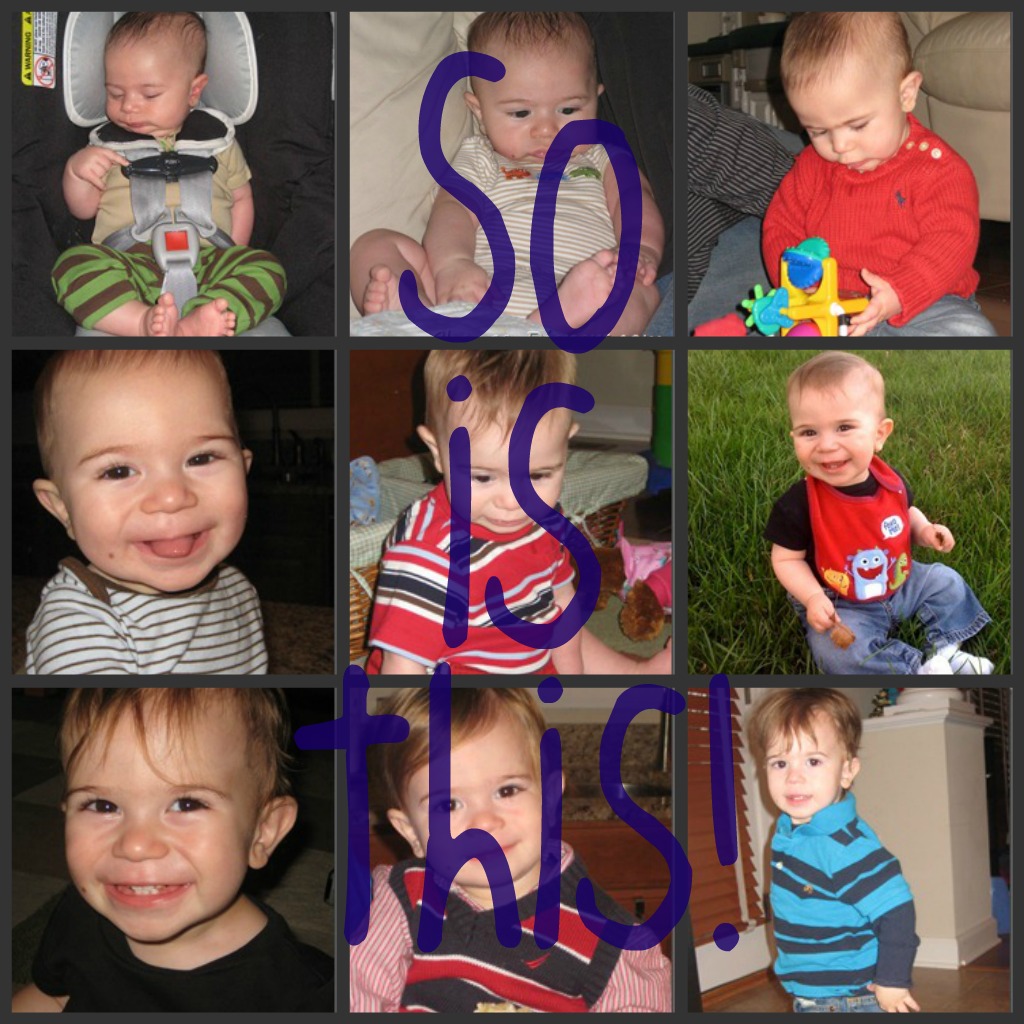
I’ve remarked before that I don’t know how our mothers did it without the internet. I don’t mean listening to what some schmuck (me) says, but having actual medical journals and details of studies right at your fingertips. It’s amazing and I don’t know what I’d do without it! Back in 2005 when I had my daughter, I was a member of a breastfeeding group on Parents.com. I credit those women (along with my stubbornness) for my breastfeeding success. Without them, I would have failed, as I was set up to by pediatricians and hospital staff.
This story begins with my miserable first birth experience, which culminated in an epidural, and me so swollen, I was sure I would pop. IV fluids given during labor can artificially inflate baby’s birth weight, leading to “alarming” weight loss in the first 24 hours. A loss of 5-7% of birth weight is physiologically appropriate for a newborn, sometimes up to 10%. When my daughter had lost about 5% in that first day, I was immediately bullied to give formula. I was even told by a nurse that “the doctor would make” me if I didn’t. We tried, she wasn’t interested. The only photo I have of my husband with her in the hospital is the one where he is trying to feed her formula. I can’t stand to look at that picture to this day, 7 years later. Not because I think formula is “evil,” but because it represents my complete failure to stand up for myself and our daughter during that entire experience.
Whether the baby loses 1% or 10%, it’s important to use the lowest weight when assessing subsequent weight gain. Depending on the source, it’s expected that a breastfed baby will gain between 4 and 8 ounces per week in the first few months.
Dr. Jay Gordon urges parents and Doctors to “look at the baby, not the scale,” which I will talk about more in a bit. Even if your baby is gaining “enough” weight per week, he or she may not be on the CDC’s growth charts, as mine weren’t. Interestingly enough, even the CDC recommends that health care providers use the WHO growth standards for children up to age 2.
They state:
The WHO standards establish growth of the breastfed infant as the norm for growth.
Breastfeeding is the recommended standard for infant feeding. The WHO charts reflect growth patterns among children who were predominantly breastfed for at least 4 months and still breastfeeding at 12 months.
The WHO standards provide a better description of physiological growth in infancy.
Clinicians often use the CDC growth charts as standards on how young children should grow. However the CDC growth charts are references; they identify how typical children in the US did grow during a specific time period. Typical growth patterns may not be ideal growth patterns. The WHO growth charts are standards; they identify how children should grow when provided optimal conditions. [Emphasis mine. Imagine using the “typical” American as the benchmark for health.]
The WHO standards are based on a high-quality study designed explicitly for creating growth charts.
The WHO standards were constructed using longitudinal length and weight data measured at frequent intervals. For the CDC growth charts, weight data were not available between birth and 3 months of age and the sample sizes were small for sex and age groups during the first 6 months of age.
Imagine that.
Edit: about a week after I posted this, the AAP came out with a new, more strongly worded statement about breastfeeding, in which they say “infant growth should be monitored with the World Health Organization (WHO) Growth Curve Standards to avoid mislabeling infants as underweight or failing to thrive.” YAY!
So what happened to us was what happens to so many other families. My daughter was meeting all expected milestones, was healthy, nursing well, having tons of wet and dirty diapers, but fell off the CDC’s growth charts. We were going to one of those offices where a dozen or more pediatricians practiced, and you saw whomever was available, for the most part. If you needed a last minute appointment, you usually got the most rotten doctor, since they were the only one not booked solid. We saw a doctor who graduated med school in 1972 (I looked it up) and probably hasn’t read a study or paid attention at a seminar since then. He immediately told us to stop breastfeeding, give formula and oh, put some cereal in the bottle too. Believe it or not, DH & I both went to this same practice as kids & saw this doctor!
What did I do? Smile, nod and get the heck out of there. Over the next several months, though she had no symptoms aside from being genetically small (her dad is around 5′ 7″ max and I am not quite 5′ tall, hovering around 100 lbs or less when not pregnant/postpartum) she was put through a battery of blood and urine tests. All are normal. Surprise.
We eventually got an appointment with the doctor who is now our current pediatrician (he left the practice & we followed him…cue creepy stalker music.) Though he graduated med school in 1980, just 8 years after jerk-o/idiot doc, he has kept up on AAP guidelines (which are unfortunately usually behind) and reads studies and attends seminars regularly. He is pro-breastfeeding & conservative in treating patients.
With his help, we did additional testing for things that may have been causing slow weight gain, without showing symptoms, and fortunately she was fine. We did some extra weight checks and tracked her individual growth curve (you can do this too by creating an interactive growth chart.) Aside from one visit where she appeared to “dip,” she rode her own curve just under the growth chart. The doctor wasn’t too concerned about the dip, since a few ounces makes a big difference, and a few ounces is easy to gain or lose with drinking/urination.
All along, he told me he had the feeling it was simply genetic, but of course, he doesn’t want to miss something, hence the testing.
Finally, at age 2 1/2 she barely got on the growth chart & has been hanging around the 3% ever since. He has told me that he’d “take IQ over weight any day,” referring to my daughter’s impressive verbal/reading/writing skills. (Proud mama here.)

When my son was born around 8 pounds, we were hopeful that he would stay “big”, and we could avoid all the weight checks. Unfortunately, he followed exactly the same patterns. Fortunately the doctor was quite conservative in tests & weight checks and he finally got on the chart at age 2!

When I was still expecting baby #3, we discussed the issue and he said that at this point, with the history, he’s convinced it’s genetic. As nice as it would be to have a baby “on the chart,” he wasn’t expecting it. My son was born at 6 lb 12 oz, down to 6 lb 5 oz at 3 days old (we’re not completely sure on all this because of some scale issues!) then up to 7 lbs at a week, 8 lbs at a month and 9 lb 10 oz at 2 months, or…the 25%, yay! He told me that he doesn’t necessarily expect him to be a big baby, and I don’t think he’d be surprised if he started falling down on the charts, but for now it’s a victory.
Even though I eventually found a supportive doctor, the doubt always crept in, and as great as he is, he said several things that contributed to that. First, he often asked an open ended question along the lines of “how do you feel about your milk supply.” Uh, well I felt fine until you asked, now I’m paranoid! He mentioned pumping output (a baby extracts milk much more efficiently than a pump, and some women simply can’t let down for a pump at all.) He also asked about feeling letdown. Not all women feel their letdown, and it often becomes less pronounced as baby gets older. Even questions of “does baby seem satisfied” can be a slippery slope, since a baby may nurse constantly and get a bit fussy while working on increasing supply during a growth spurt.
So what should be asked? Initially, make sure the baby is latched well. Is there pain? Has the mother seen a lactation consultant? Once milk has come in, can you hear the baby swallowing? Is the baby having wet and dirty diapers appropriate for his/her age? Is baby alert (as appropriate for age) and meeting milestones?
I knew my daughter (and son too) was fine, but I was still paranoid and wanted to get her on those gosh darned charts!! We tried Pediasure when she was a toddler (just filled her belly so she didn’t want to eat and whew, made nasty diapers.) We tried high fat foods like avocado, cream cheese etc. It didn’t help. Dr. Sears says “Active babies with persistent, motor-driven personalities who always seem to be revved up usually burn more calories and tend to be leaner.” We have videos of our daughter at just a few weeks old, constantly moving as if she were swimming in an invisible pool. Even now at age 7, she does.not.stay.still.
He also says “Various studies have shown that breastfed infants consume fewer calories and a lower volume of milk than formula-fed infants. This doesn’t mean that their mothers aren’t producing enough milk. Instead, it’s an indication that breastfed infants have an amazing ability to self-regulate their calorie intake according to their individual needs. This ability to determine for themselves how much they eat is probably one of the reasons that infants who are breastfed are less likely to have problems with obesity later in childhood.” (Emphasis mine.)
She weighs the perfect amount for her. She looks an awful lot like my husband did at that age; all knees and elbows! She has always been “tall for her weight,” which made her look even more slender. My son is more proportionate, so he looks chubbier.
For some reason, people think it’s OK, or appropriate to make rude remarks about a baby’s size. I’ve had strangers ask how much they weighed at birth, asked if they were preemies, implied that I was starving them and so forth. It’s so fun to hear “she’s so small” said with a look of disgust (not.) People still make remarks about my daughter being “so skinny” which infuriates me. It wouldn’t be OK to say something like that if she were overweight, so why is it OK to damage her self-esteem and body image with “too skinny” comments? She has always been a great eater, except when there was something more interesting going on. Therefore, any time we would have visitors (or visit someone) she would want to play, not eat. That meant more lovely comments about “no wonder she’s so skinny, she doesn’t eat.” I’d try to explain that she ate great at home blah, blah but no one believed me! (We also eat a diet that’s far healthier and more balanced than the average American diet. I’m sure I could fatten my kids up if I overfed them fatty ground beef, fast food, potato chips and Tastycakes instead of fruit, veggies, beans & lean meat!)
Though I’ve never had a “big” baby, I imagine people are similarly rude in that case. My daughter has been friends with a little girl since they were in 3-year preschool together. When I met her, she was a perfectly normal looking little girl, but her mom showed me a picture of her as a baby. No lie, she looked like the Michelin man. I have never seen a chubbier, more roly poly baby in my life. She was 100% breastfed, and slimmed down when she became mobile. She got equally rude comments when her daughter was “too big” and her milk must be “no good.” My BFF has “top of the charts” babies, but they look totally healthy & are proportionately tall. I thought it was ironic that she was stressing about her 90 whatever-th percentile breastfed baby gaining “too much”, while I was worrying about my <3% breastfed baby!
In conclusion, before you turn to formula, look at the whole picture, not just the chart. I wish I could clone my pediatrician and send him to all of you. He isn’t perfect, but he is fantastic. When he told us he was leaving the big practice, I was terrified that he was going to tell me he was retiring! (He’s not allowed until all my kids are grown up.) He is fairly supportive of breastfeeding (I keep extended bf’ing and night nursings to myself, LOL) and has made comments about how great breastfeeding is, that it’s the best thing I can do, keeps them healthy etc. He’s open to alternative vaccination schedules, was wonderful about my home birth, and continues to educate himself. When we were concerned about my son’s verbal skills, he suggested a baby sign language class, adding that 10 years ago, he would have told me that signing would hinder his verbal development, but recent studies show the opposite! He was even telling me about a seminar he attended about how they do the PKU testing.
At the same time, he’s very diplomatic. If you formula feed by choice, he won’t make you feel inferior. We didn’t even know his stance on circumcision until we asked. (We’d already researched & made our choice, but thought it was important to have a doctor on the same page.) He passed along the AAP’s stance on vitamin D supplementation in breastfed babies, but tells us not to sweat it if we choose not to. He doesn’t think babies or children with balanced diets need multivitamins, but will support you if you decide to use them.
So, phew. This ended up a mile long but I sincerely help it helps someone! I’m not a “militant” lactivist, but I do wish that women had all the information about breastfeeding and formula and had the support to succeed.
Has anyone else dealt with a top or bottom of the charts baby? How did your doctor handle it?



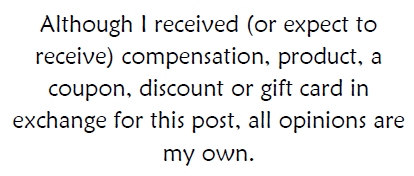
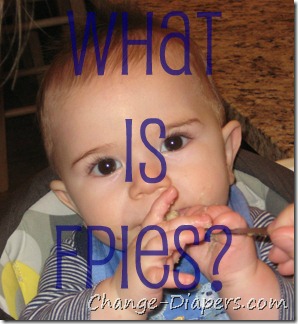
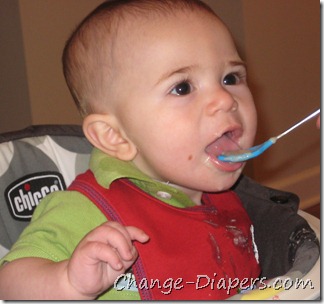
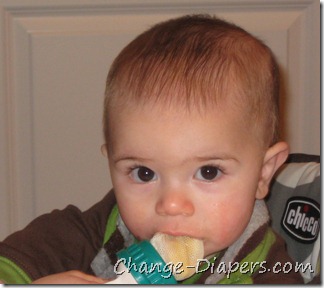
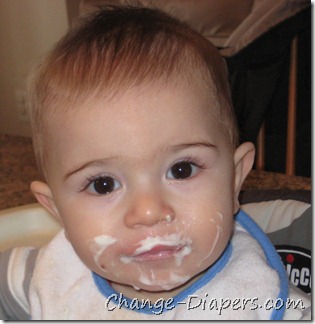







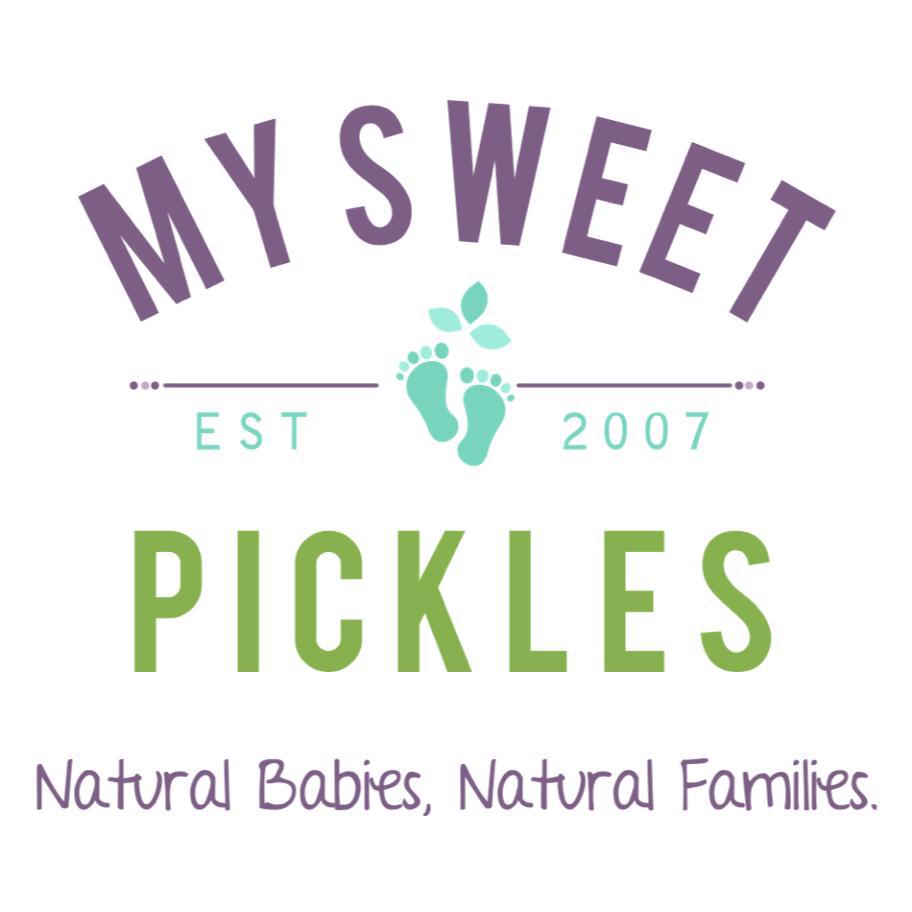


 Maria wants to live in a world where cloth diapers are the norm and moms can make parenting choices without judgement. When she’s not chasing her 18, 14 and 11-year old kids around, you might find her checking out the latest gadgets, organizing something (again) or exercising in the fresh air.
Maria wants to live in a world where cloth diapers are the norm and moms can make parenting choices without judgement. When she’s not chasing her 18, 14 and 11-year old kids around, you might find her checking out the latest gadgets, organizing something (again) or exercising in the fresh air. 






